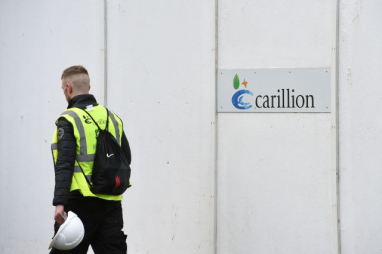- adidas Samba Sizing: How Do They Fit? , adidas nebzed k eh2542 negras , IetpShops
- nike flyknit roshe electric green black Paris 308270 - SBD - nike boot with side zipper jeans black pants size , 111 Release Date
- We all know how valuable our Air Jordans are once we pick them up
- nike navy acg fw18 , nike navy acg fw18 Low Release Date - SBD
- LEGO Air Jordan Flight Fleece Pants , air jordan 1 mid se take flight , IetpShops
- air jordan 1 retro high og university blue 555088 134
- Air Jordan 1 Blue Chill Womens CD0461 401 Release Date 4
- Air Jordan 1 Mid Bred 554724 074 2020 Release Date 4
- nike air force 1 boot cordura black wheat university gold do6702 001
- new air jordan 1 high og osb dian blue chill white cd0463 401
- Home
- News and analysis
- Info hubs
- Events
- Video
- Case Studies
- About us
- Magazine
- Advertising
Produced for the industry by the Association for Consultancy and Engineering
News
MPs say Carillion showed “utter contempt” for suppliers, ahead of damning report

Suppliers of Carillion were used to “prop up” its failing business model and used “as a line of credit to shore up its fragile balance sheet”, according to MPs investigating the demise of the liquidated industry giant.
Ahead of the launch of the final report of their inquiry into the collapse of Carillion, the work and pensions and BEIS committees have published evidence from Santander, the bank which operated Carillion’s early payment facility.
Carillion, which has been called a “notorious late payer” despite being a signatory of the prompt payment code, had a so-called early payment facility with Santander under which its suppliers could be paid early at a discount. The facility has been said to conceal its true level of borrowing.
Two major credit ratings agencies, Moody's and Standard & Poor's, have claimed have said the EPF was effectively a line of credit that should have been described as "borrowing" in annual accounts but was instead presented as liabilities to "other creditors". Moody's claim that as much as £498 million was misclassified as a result.
Carillion's financial statements did not highlight the EPF, but some analysts spotted it. Carillion's board minutes in April 2015 refer to "disappointing" analysis by UBS that had factored both the pension deficit and the EPF in Carillion's total debt position.
A letter published by the Work and Pensions committee shows Santander wrote off £91m that Carillion owed to suppliers through the EPF and said it withdrew from the facility in December, just weeks before the company announced it had liquidated.
Frank Field, chair of the work and pensions committee, said: "Carillion displayed utter contempt for its suppliers, many of them the small businesses that are the lifeblood of the UK’s economy. The company used its suppliers as a line of credit to shore up its fragile balance sheet, then in another of its accounting tricks ‘reclassified’ this borrowing to hide the true extent of its massive debt. This knocks down for good the stance of the Carillion board that whingeing and blaming others can be any defence."
Since the collapse in January, almost 3,000 people have lost their jobs with thousands more still left in limbo. Pension liabilities for the company totalled £2.6bn at the time of its fall.
Rachel Reeves, chair of the BEIS committee, said: "The collapse of Carillion left small businesses and sub-contractors out-of-pocket with many left unpaid for months and facing ruin. It’s a bitter irony that while Carillion were fully signed up to the government’s Prompt Payment Code, they were making their suppliers hang on for 120 days or more to be paid. Carillion’s early payment facility ripped off their suppliers, forcing them to accept a cut in what they were owed, and was a blatant attempt by Carillion management to prop up their failing business model."





